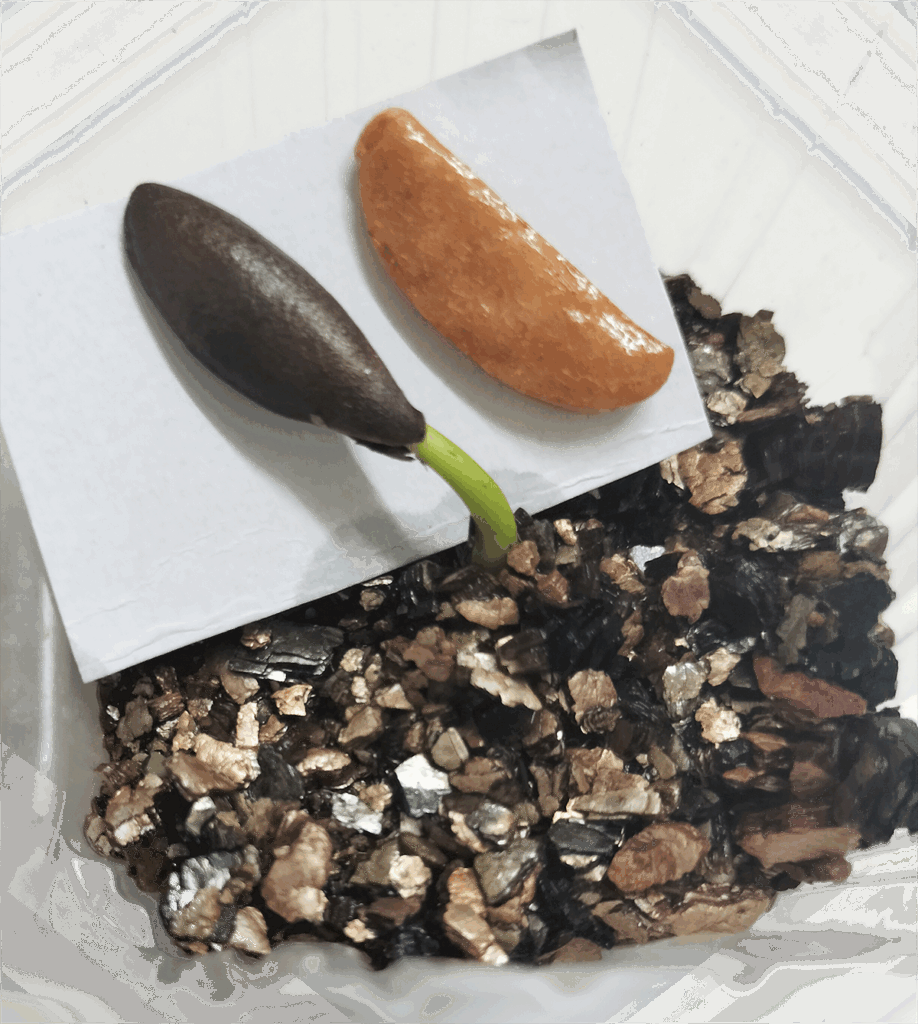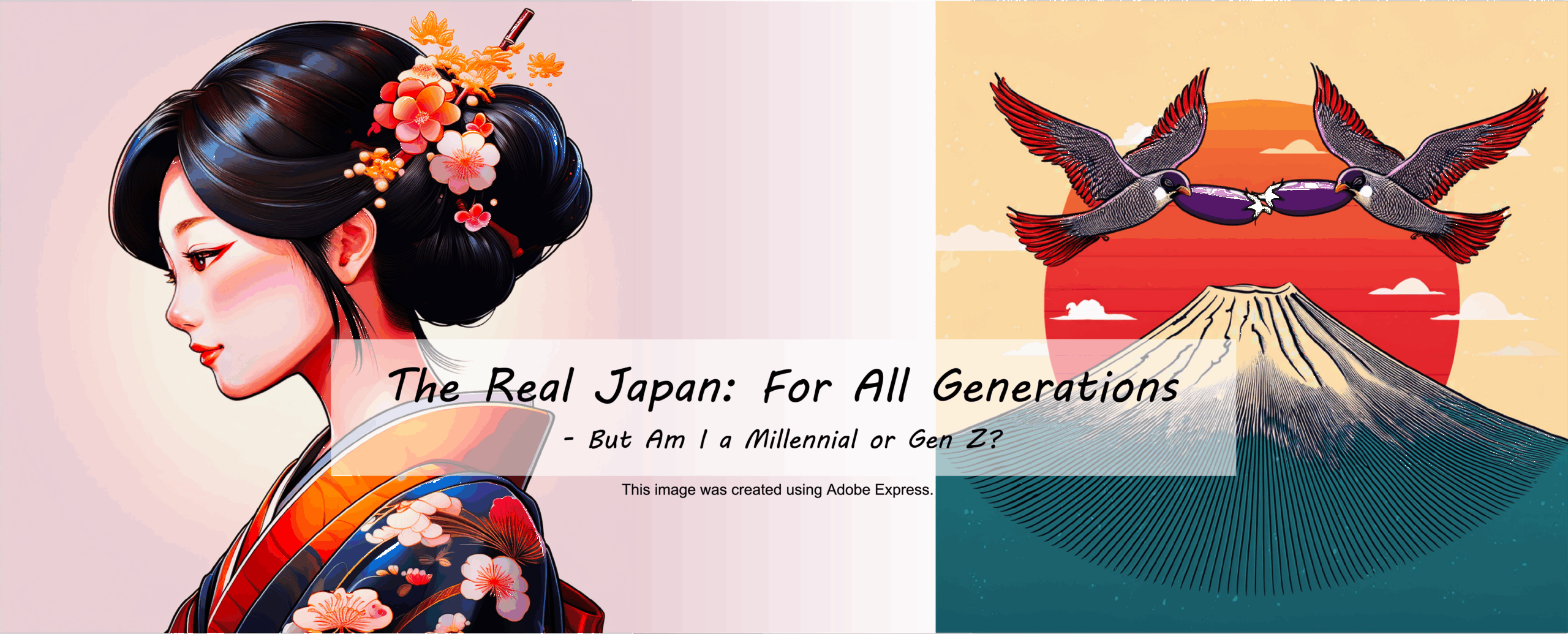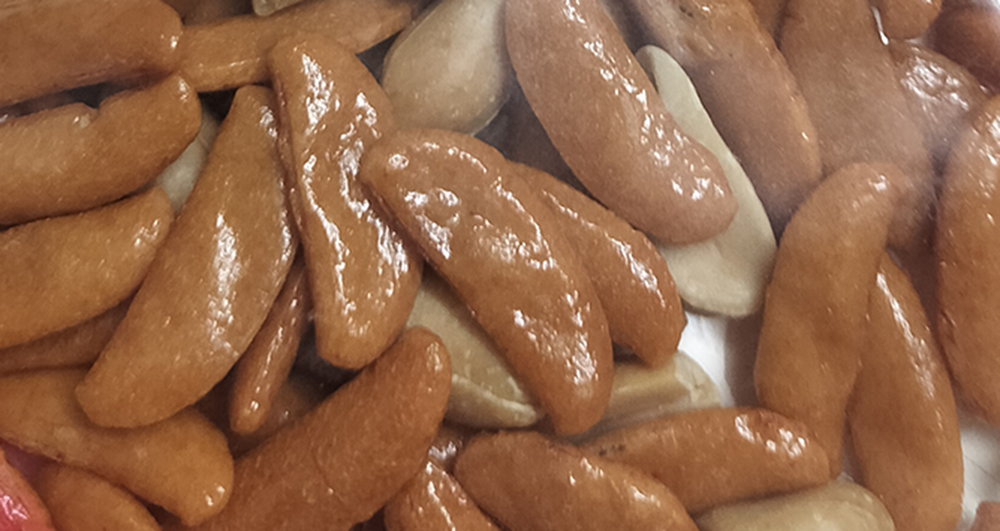※このコンテンツは、日本語または英語を学んでいる学習者向けに作られています。
英語の文章全体の下に、日本語の全文訳を掲載しています。
また、このコラムに基づいた語彙クイズもChatGPTを使って作成しており、日本語訳のすぐ下に掲載しています。
内容の理解を深めるのに役立つので、ぜひ何度でもクイズに挑戦してみてください!。
※This content is designed for learners studying Japanese or English. A full Japanese translation is provided below the entire English passage.
I also created a vocabulary quiz for this column using ChatGPT, which you’ll find just below the Japanese translation.
It’s a great way to deepen your understanding of the content—feel free to take the quiz as many times as you like!
“Kaki no Tane” – Japan’s Beloved Snack / 「柿の種」というお菓子について
Kaki no Tane is a classic Japanese snack that’s loved by just about everyone—young and old alike. As the name suggests, it’s shaped to look like real persimmon seeds.
Actually, I’m currently trying to sprout a seed from a dried persimmon at home, so I thought I’d compare it with this one. What do you think? The color’s a bit lighter, but the shape is spot on!

These little crackers are super thin and crispy, and they usually come in wasabi or soy sauce flavor. They’re often packed with peanuts in small snack-sized bags. Because they’re light and easy to chew, they’re perfect for kids, seniors, and anyone in between. Honestly, once you start eating, it’s hard to stop!
Speaking of persimmons, did you know it takes years for a persimmon tree to start bearing fruit? There’s a Japanese saying:
“Momo kuri sannen, kaki hachinen”
(Three years for peaches and chestnuts, eight for persimmons.)
The article
“Did You Know There’s a Longer Version of ‘Momo Kuri Sannen Kaki Hachinen’? Full Explanation of Meaning, Origin, Usage, Synonyms, Antonyms, and English Equivalents”
(https://hugkum.sho.jp/634283) explains:
“It means that persistence and patience over the long term will eventually bear fruit. In English, this can be expressed as ‘Persistence pays off.’”
My English is still a work in progress, and I rely on AI assistance sometimes, but I keep studying little by little. Persistence pays off, right? To all my fellow English learners out there—let’s keep at it together!
And to those of you studying Japanese, I hope this blog becomes a helpful resource for you too.
See you next time!
– Miki
Let’s read it in Japanese.
柿の種は、日本の老若男女から長年愛され続けているお菓子です。その名の通り、本物の柿の種に形もサイズもよく似せて作られています。
どのくらい似ているかというと――ちょうど今、私が干し柿の種から発芽させているところなので、実物と比べてみましょう。どうでしょうか? 少し色は薄いですが、形はそっくりですね。
このお菓子は、薄くて軽やかな食感の煎餅で、味はワサビ味や定番の醤油味があります。ピーナッツと一緒に小袋に入っているのが一般的で、歯の弱い高齢者や顎の力がまだ弱い子ども、大人まで、誰もが食べやすくて、ついつい手が止まらなくなる魅力があります。
ちなみに、柿の実が収穫できるまでには時間がかかるということをご存知でしょうか? 日本にはこんなことわざがあります。
「桃栗三年柿八年」
出典:『「桃栗三年柿八年」には梅・柚子・梨の続きがあった! 意味や語源、使い方、類語、対義語、英語表現までを一挙に解説!』
(https://hugkum.sho.jp/634283)より引用:
「長年根気強く続けることが実を結ぶこと」であり、英語では “Persistence pays off”(根気は報われる)と表現されることがあります。
私の英語力もまだまだ発展途上ですが、AIの力も借りながら、コツコツと勉強を続けています。”Persistence pays off”――英語学習中の世界中の仲間たち、一緒に頑張りましょう!
そしてこのブログが、日本語を学んでいる方々にとっても、少しでも役に立つものとなれば嬉しいです。
それでは、また次回の更新をお楽しみに!
Miki より
Choose Your Quiz/クイズを選んでね

The list below also includes pronunciation symbols for English words and idioms.
以下の一覧には英単語とイディオムの発音記号も含まれています。




コメント